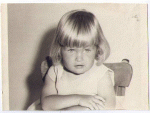williamco wrote:BleepingBeauty : thanks for your observations. 2 valid points leak and sleep schedual.
while I am working on the leak, my leak is not from the mask activa, the mask is working great but it is in the mouth leak and I am working on that. however, whithin the same night that have parts of leak line pops and dips, the other parts of the same night where the line is straight, the apnea is still there and with high rate too
Everything I read here with regard to data says: Until the leak is under control, you can't trust the other data to be accurate. So first and foremost, priority-wise, is to get the leaking under control. If that means taping your mouth shut and/or wearing a chinstrap, or switching over to a full-face mask, you do what you have to do. (I was a confirmed nasal pillows user. I wore a chinstrap when it became apparent that I was mouth-breathing, but it didn't stop me from leaking air from my lips. So I taped for awhile, but I didn't like it much. A little over a month ago, I got the Respironics FullLife FFM, and my therapy numbers have never looked so good.)
sleep schedual: absolutely I am working on it. but do you think the time of sleep has anything to do with the rate of the apnea or pressure required..
I can't answer that question, as I don't have the background or experience for it. But one of the rules of good sleep hygiene is sleeping in the dark; if you're going to bed at 5:00 a.m. and your bedroom isn't completely "blacked out" from the outside light, you're not doing yourself any favors. Even with eyes closed, our bodies can sense light, and that can interfere with good sleep.
For your convenience, here's the list of good sleep hygiene tips (from Muffy) that I've been following:
Fixed bedtime and awakening time, 7 days a week.
No naps.
No alcohol, caffeine, chocolate, smoking.
Maybe a light snack before bed, no sugar. Stick to carbohydrates or dairy products.
Exercise program.
Cut BMI.
Comfortable bedding. Cool room temperature. No noise.
Relaxation techniques before bed. Yoga, deep breathing, Herb Benson.
No computer before bed (the screen eats up the melatonin). No bright lights during the sleeping period.
Establish pre-sleep ritual.
Bright light therapy. As soon as you get up in the morning, go outside and get 15-30 minutes of face-sun.
A lavender sachet (lavender helps sleep).
Address any pain issues.
Optimize medications.
And here is a similar list (with Do's and Don'ts) from
http://www.uihealthcare.com/topics/medi ... index.html:
Paying attention to good sleep hygiene is the most important thing you can do to maintain good sleep.
Do:
1. Go to bed at the same time each day.
2. Get up from bed at the same time each day.
3. Get regular exercise each day, preferably in the morning. There is good evidence that regular exercise improves restful sleep. This includes stretching and aerobic exercise.
4. Get regular exposure to outdoor or bright lights, especially in the late afternoon.
5. Keep the temperature in your bedroom comfortable.
6. Keep the bedroom quiet when sleeping.
7. Keep the bedroom dark enough to facilitate sleep.
8. Use your bed only for sleep and sex.
9. Take medications as directed. It is often helpful to take prescribed sleeping pills one hour before bedtime, so they are causing drowsiness when you lie down, or 10 hours before getting up, to avoid daytime drowsiness.
10. Use a relaxation exercise just before going to sleep. Muscle relaxation, imagery, massage, warm bath, etc.
11. Keep your feet and hands warm. Wear warm socks and/or mittens or gloves to bed.
Don't:
1. Exercise just before going to bed.
2. Engage in stimulating activity just before bed, such as playing a competitive game, watching an exciting program or movie on television, or having an important discussion with a loved one.
3. Have caffeine in the evening (coffee, many teas, chocolate, sodas, etc.)
4. Read or watch television in bed.
5. Use alcohol to help you sleep.
6. Go to bed too hungry or too full.
7. Take another person's sleeping pills.
8. Take over-the-counter sleeping pills, without your doctor's knowledge. Tolerance can develop rapidly with these medications. Diphenhydramine (an ingredient commonly found in over-the-counter sleep medications) can have serious side effects for elderly patients.
9. Take daytime naps.
10. Command yourself to go to sleep. This only makes your mind and body more alert.
If you lie in bed awake for more than 20-30 minutes, get up, go to a different room (or different part of the bedroom), participate in a quiet activity (e.g. non-excitable reading or television), then return to bed when you feel sleepy. Do this as many times during the night as needed.
HTH
























